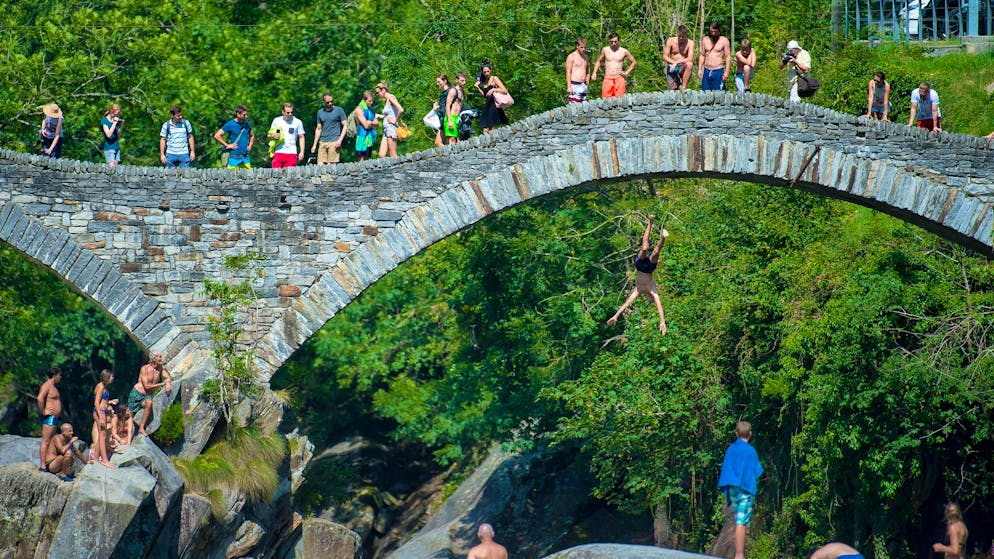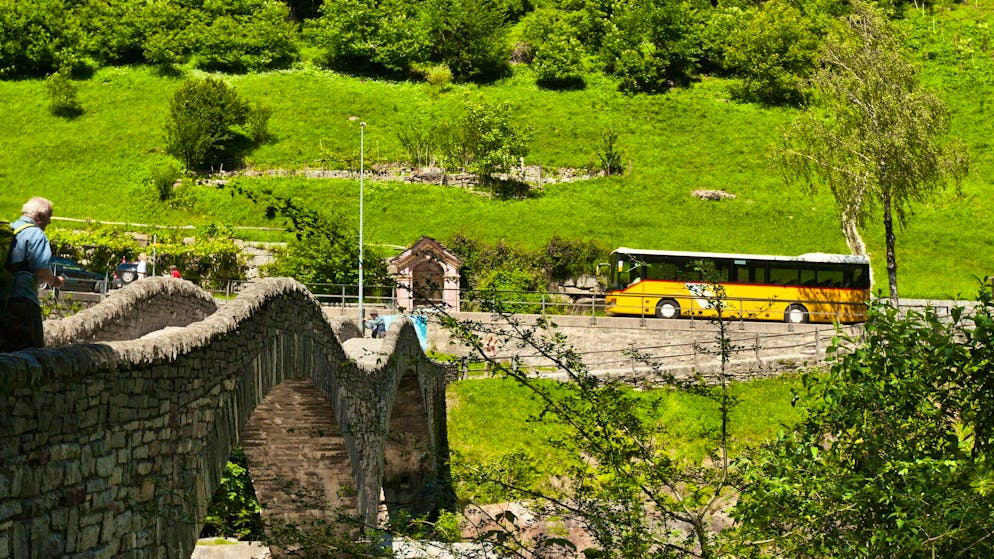"The smart ones stand for 1 hour" Jostling tourists challenge Ticino post bus drivers
Jenny Keller
29.7.2024

During the coronavirus pandemic, the Verzasca Valley in Ticino experienced a massive increase in tourists - and the region is still extremely popular today. A challenge for the bus drivers.
No time? blue News summarizes for you
- 50,000 guests use the Postbuses in the Verzasca Valley in Ticino in summer.
- Tourists often crowd so heavily into the Postbus that bus drivers can barely close the doors.
- Since the coronavirus pandemic, the number of campers and the resulting challenges have also risen sharply.
Not least because of influencers, the Verzasca Valley in Ticino with its gray-green waters is experiencing a real tourist boom and attracting numerous visitors.
In the summer months, around 50,000 guests use the PostBus connections to the Ticino valley - a considerable challenge for the drivers.
This high frequency not only means increased attention and stress for drivers, but also logistical difficulties in coping with the rush.
Giuseppe Basilico, a 48-year-old Postbus driver, experiences how tourists crowd into his Postbus every day, sometimes making it difficult for him to close the doors.
At such times, they remind him of vultures, he tells the SRF news program "Echo der Zeit"."No sooner have I parked than they want to get in."
"Now the smart ones have to stand for an hour"
During the coronavirus pandemic, the Postbuses drove up the narrow Ticino valley in groups of four or five, now they drive in groups of three.

Although Giuseppe Basilico signals "No" with his hands, around a dozen passengers board his full bus at the next stop instead of waiting for the next one.
"The smart ones got on with me. They thought there was still room here. Now they have to stand for the hour-long journey," he informs a colleague and doesn't open any more doors for the rest of the journey.
Basilico estimates that 90 percent of tourists are well behaved. But it infuriates him when people in need, such as pregnant women and the elderly, are not offered a seat.
He stays in contact with the other two drivers via radio and warns them of dangers, such as a van driving too fast.
Campers exacerbate the situation
This communication is fundamentally important for the drivers and serves as an early warning system. "The road is very winding and sometimes narrow."
Since the coronavirus pandemic, not only has the number of tourists increased, but also the number of campers.
Many new pitches have been created in the Verzasca Valley to get wild camping under control. Despite this infrastructure, the many campers who use the valley road at the weekend alongside motorcyclists and cyclists pose a challenge.
"My colleagues have already had to hit the wall with the Postbus and accept a fender bender so as not to touch the camper," says Giuseppe Basilico in the SRF news program "Echo der Zeit".
Learn Swiss German instead of getting annoyed
Many tourists bring their own picnic and only stay in the valley for half an hour to take photos, which frustrates the restaurant and grotto owners.
Basilico goes on to say that most tourists don't speak Italian. This makes communication difficult. The native Italian then communicates in English or using his cell phone.
Unlike other chauffeurs, he is not annoyed by this, but sees it as an opportunity to learn a little Swiss German.
Giuseppe Basilico has strong nerves and is proud of his work. However, he finds it particularly meaningful when he can communicate with the valley residents.
Older people in particular like to chat with him to help them forget their loneliness, he says.
